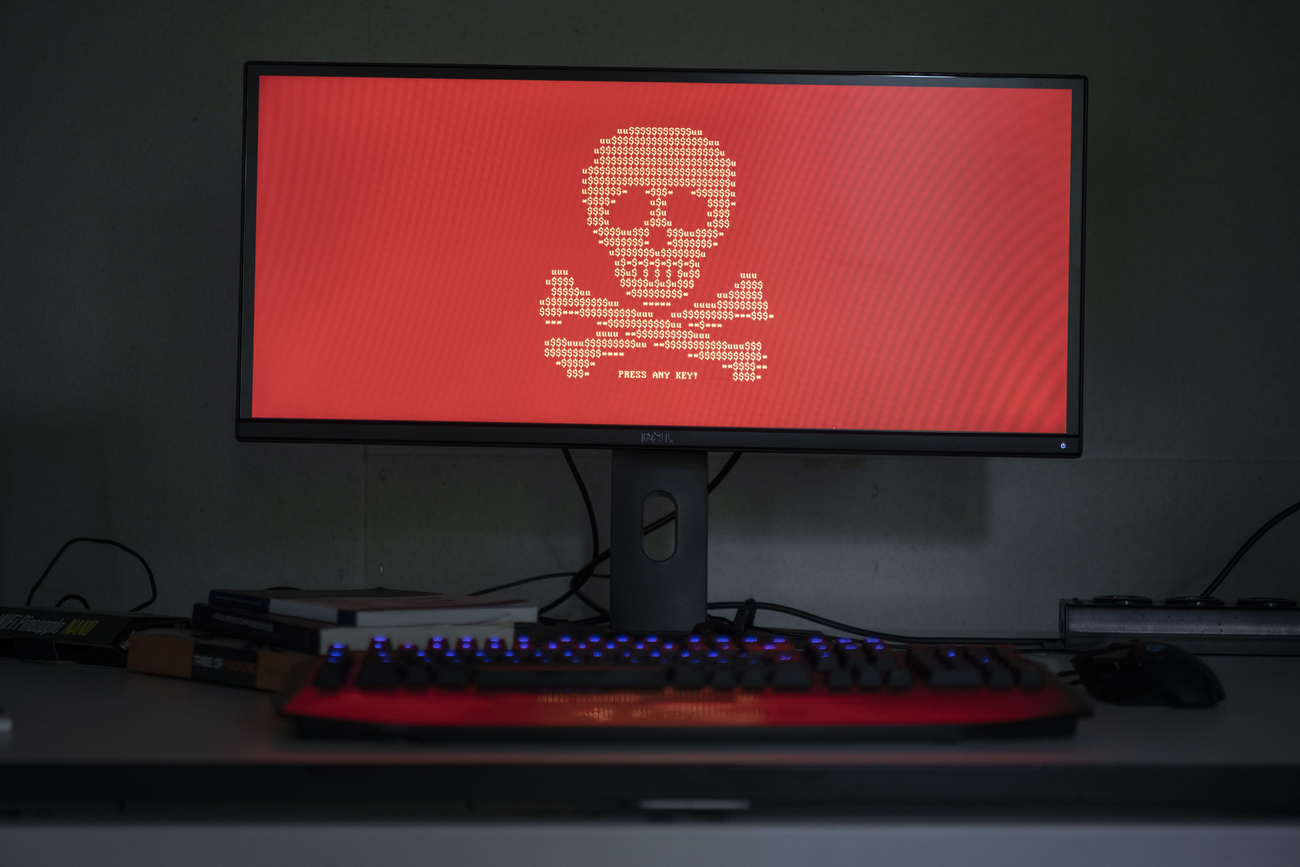
Political motives behind cyberattacks on Swiss government websites

The Russian "hacktivists" who attacked Swiss government websites last spring, notably around the time Ukrainian President Volodymyr Zelensky addressed the Swiss parliament, were politically motivated, says the National Centre for Cyber Security (NCSC).
A first cyber attack in June followed a decision by the Senate on the Federal Law on War Materiel. The Senate wanted to authorise the re-export of war materiel purchased in Switzerland, subject to certain conditions. In response, Russian “hacktivists” launched a distributed denial of service (DDoS) attack against the parliamentary website, with the aim of overloading it with requests and making it unavailable to users, the NCSC said on Thursday in its half-yearly report.

More
Explainer: how vulnerable is Switzerland to cyber-attacks?
The trigger for a second attack in June was the announcement of Zelensky’s virtual address to the Swiss parliament. The hackers broadened their targets: some sites of the federal administration, former federal agencies such as the Swiss Federal Railways and Swiss Post, major companies, banks, a number of airports and towns and cantons were hit on June 12 or the following days.
Fraud is most common
Overall, the number of reports of cyber incidents rose by around 2,000 in the first half of the year compared with the same period last year, to just over 19,000, the NCSC said in its report. The majority of cases continue to involve fraud in various forms.
In this category, the most frequent reports (30%) concern threatening e-mails, allegedly sent by a Swiss or foreign authority and accusing the recipient of having committed an offence. The NCSC also notes that its name was increasingly used fraudulently in the first half of 2023.
+ Almost half of large companies victims of cyberattacks
Phishing is the second-most reported cyber incident, accounting for one in five reports. This technique, by which criminals attempt to gain access to users’ confidential data, has increased by 40% in one year. A wave of phishing attacks against customers of the Swisspass travel app occurred at the beginning of the year.
The number of ransomware incidents (64) remained stable compared with the first half of 2022 (76). Unlike last year, it was businesses that were affected, not private individuals. This type of attack, which renders data unusable by encrypting it, results not only in short-term interruptions to operations but also in the potential publication of stolen data. The damage suffered is therefore particularly difficult to estimate.
This news story has been written and carefully fact-checked by an external editorial team. At SWI swissinfo.ch we select the most relevant news for an international audience and use automatic translation tools such as DeepL to translate it into English. Providing you with automatically translated news gives us the time to write more in-depth articles. You can find them here.
If you want to know more about how we work, have a look here, and if you have feedback on this news story please write to english@swissinfo.ch.

In compliance with the JTI standards
More: SWI swissinfo.ch certified by the Journalism Trust Initiative




























You can find an overview of ongoing debates with our journalists here . Please join us!
If you want to start a conversation about a topic raised in this article or want to report factual errors, email us at english@swissinfo.ch.